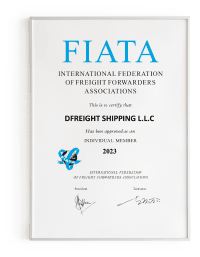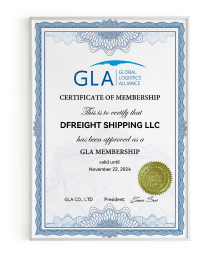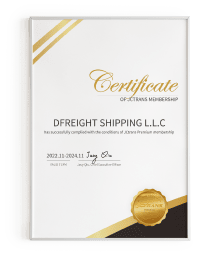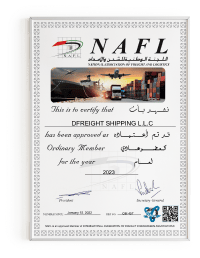Air Freight to Germany
Air Freight to Germany
Fast, Reliable, and Efficient Air Freight to/from Germany
DFreight Air Freight Service is your top choice for swift and dependable air cargo shipping to/from Germany. For a variety of commodities, including perishable goods, healthcare supplies, electronics, machinery, or anything that demands fast delivery from Germany to the UAE and vice versa, we’ve got you covered. With years of expertise, comprehensive solutions, a commitment to on-time delivery, cutting-edge technology, top-notch security, competitive pricing, and a global reach, we’re here to make your airfreight experience seamless and worry-free. Trust DFreight for excellence in air shipping and submit your inquiry right away to receive the best competitive prices for your air cargo to/from Germany.

Germany Exports and
Imports
The top exports of Germany are Cars, Packaged Medicaments, Motor vehicles; parts and accessories, Vaccines, blood, antisera, toxins and cultures, and Planes, Helicopters, and/or Spacecraft, exporting mostly to United States, China, France, Netherlands, and United Kingdom.
The top imports of Germany are Cars, Motor vehicles; auto parts and accessories, Packaged Pharmaceuticals, Broadcasting Equipment, Vaccines, blood, antisera, and toxins, imported mostly from China, Netherlands, Poland, France, and Italy.
Market Update
According to OEC, in 2020, Germany was number 4 in total exports, number 3 in total imports, number 20 economy in terms of GDP per capita, and the number 4 most complex economy according to the Economic Complexity Index (ECI).
According to the Trading Economics database, exports to the UAE in Germany averaged 615,178.09 EUR THO from 2000 to 2022, reaching an all-time high of 2,298,230 EUR THO in December 2016 and 144,746.00 EUR THO in April.
In 2023, the trade market between Germany and the United Arab Emirates is flourishing. Germany is one of the leading trade partners of the UAE, and the two countries have strong economic ties. The UAE is a major market for German exports, and German companies are investing heavily in the UAE. The two countries are also cooperating closely on issues such as energy and climate change.
Banned Products
There are several products that are banned from entering Germany. These consist of
1. Products that contain asbestos
2. Products that contain mercury
3. Products that contain lead
4. Products that contain cadmium
5. Products that contain chromium VI
6. Products that contain brominated flame retardants
7. Products that contain PVC
8. Products that contain phthalates
9. Products that contain bisphenol A
Due to their potential harm to both human health and the environment, these items are banned.


Documents & Customs Clearance
One thing to take into account when exporting cargo internationally is customs clearance. You must be aware of the customs clearance regulations of the destination countries when shipping cargo from Germany.
The following documentation must be given to local customs for international shipments by the supplier, consignee, or intermediary:
1. Commercial Invoice
2. Packing List
3. Certificate of Origin
4. Letter of Credit (other payment terms)
5. Bill of Lading
To prevent any delays or issues with German customs, all this paperwork must be correct and comprehensive. Additionally, it is usually a good idea to insure your cargo in case any losses or damages happen while it is in transit.
Shipping Different Commodities from/to Germany
An Ultimate Guide to Shipping Generators and Power Systems
Shipping Crude Oil and Natural Gas: A Comprehensive Overview
How to Ship Fragile Goods from/to the UAE: An Ultimate Guide
Major Air Cargo Port
-
Italy
Germany
United Kingdom
Netherlands
France
Turkey
Spain
Denmark
Switzerland
Czech Republic
Hungary
Poland
Romania
Greece
Portugal
Slovakia
Sweden
Ireland
-
China
India
Taiwan
Hong Kong
Japan
Singapore
South Korea
Malaysia
Qatar
Indonesia
Saudi Arabia
Thailand
Bangladesh
Lebanon
Kuwait
-
Uganda
Congo
Egypt
Rwanda
Kenya
South Africa
Morocco
Algeria
-
-
-


We consolidate cargo from Germany, Belgium, France, Luxembourg, and nearby cities to Amsterdam, then ship it directly to Dubai.
Certificates & Memberships




- Stress-Free Documentation We simplify the paperwork process, making it easy for you to focus on what matters most – your shipment.
- Clear Cost Breakdown Our pricing is straightforward, with a detailed breakdown so you can see exactly where your money goes.
- Dedicated Support We’re just a click away. Your dedicated support team is there to address any questions or concerns promptly.
- Live Shipment Tracking Easily follow your ocean and air freight shipments 24/7 with real-time tracking. No more unexpected delays.
Ship Your Cargo with Ease
Get Started Today!
Why Choose Consolidated Air Freight?
Guaranteed Space
Secure your cargo space without worries.
Reliable Scheduling
Count on our reliable predictive schedules
Nationwide Collections
We pick up your cargo throughout Benelux and Germany
Regional Trucking
Benefit from local trucking within Europe and GCC
Competitive Pricing
Enjoy market-competitive air freight rates
Fast Delivery
Rapid and secure shipping for time-sensitive items
Regional Trucking
Benefit from local trucking within Europe and GCC
Competitive Pricing
Enjoy market-competitive air freight rates
Fast Delivery
Rapid and secure shipping for time-sensitive items
Guaranteed Space
Secure your cargo space without worries.
Reliable Scheduling
Count on our reliable predictive schedules
Nationwide Collections
We pick up your cargo throughout Benelux and Germany
Any Questions?
Reach out to us, and our experts will work with you to discover the tailored solution you need.





 Germany
Germany Netherlands
Netherlands Luxemburg
Luxemburg Belgium
Belgium





